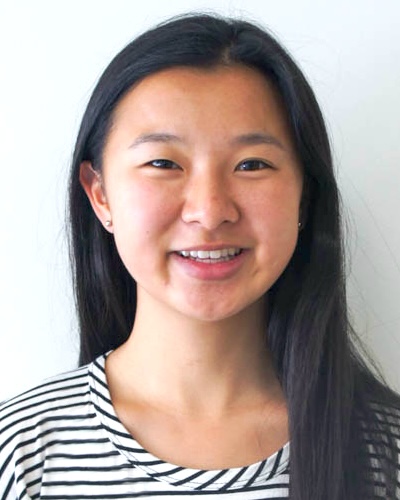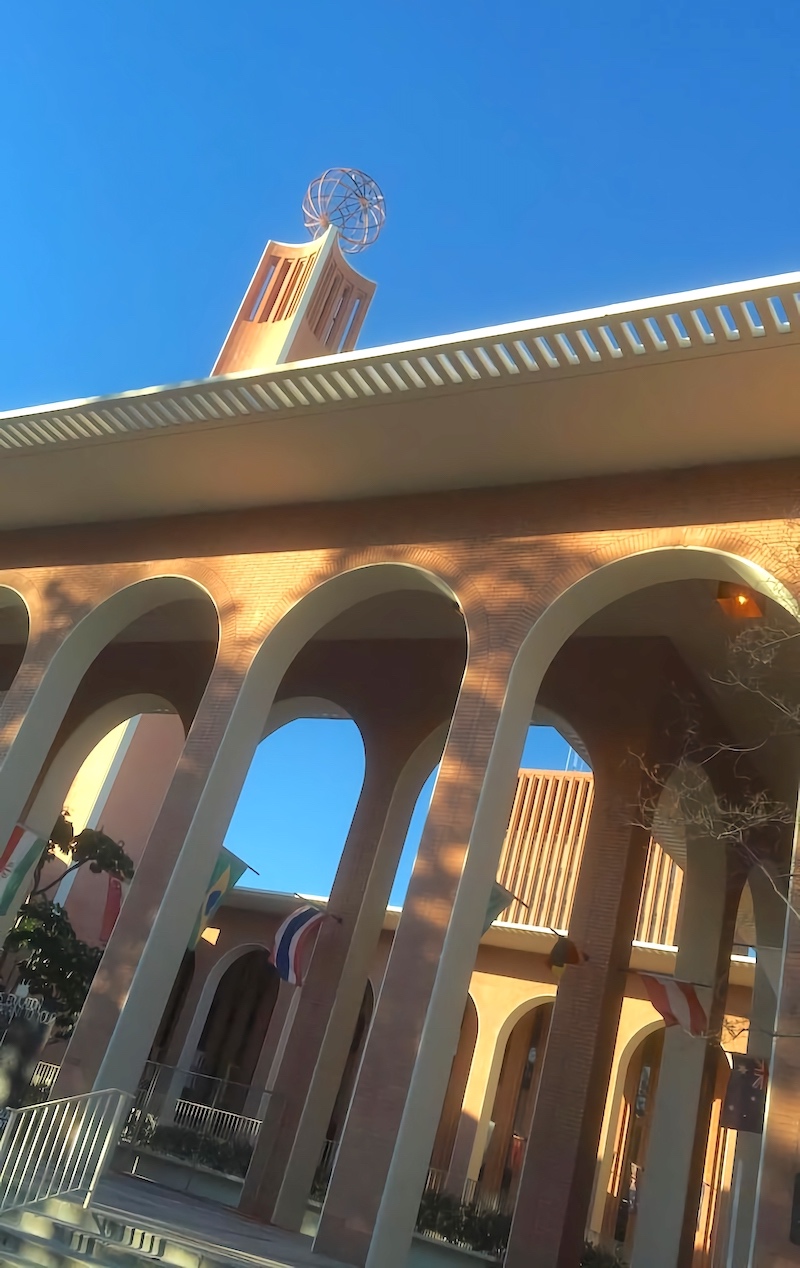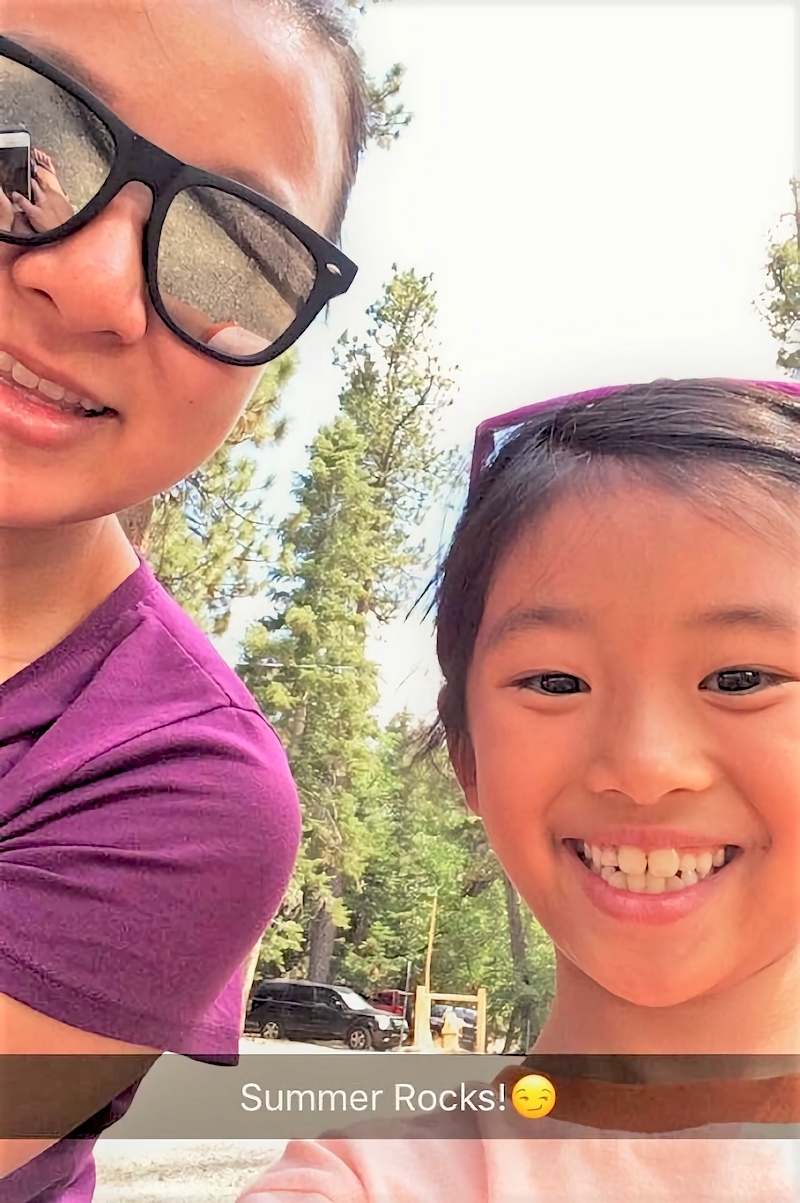Student Blog

The Roads That Lead to Rome ⟩
August 6, 2018, by Bethany
There is one downside to being an undergraduate OT. I mentioned in a previous post that when I talk about Majoring in Occupational Therapy, I get the reaction: “Oooh, what is Occupational Therapy?” So I had to quickly adapt to giving my fifteen-second pitch about what OT is and how I found it. Sharing about OT is definitely not the downside. Neither is being part of this incredible program (I am often reminded of how lucky I am to have known so early on in life what I want to do in the future). The downside is that the only other people who seemed to know what OT was, were on the same road I was on: We were all passionate about helping others, all had discovered OT early on in life, and all were part of the same program. The downside is that as an undergraduate OT, I was only aware of one way to get to OT.
But this summer, as a Student Ambassador, I had a chance to recognize that all and any roads truly do lead to Rome. Through tours, information sessions, and even meeting the incoming Entry-Level Master’s class, I have been able to see the diversity of those who stumble upon OT, not just in ethnicity and age, but also in interests and walks of life. For example, in our incoming Master’s class, there are people with degrees in Biology, Kinesiology, Psychology, and other health sciences (Majors that would be helpful for completing some of our prerequisite coursework while also highlighting the student’s passions). But then we have others who pursued other interests during their undergraduate study, perhaps the French language, Economics, or even Dance. And somehow they ended up all in the same OT Master’s program at the same time. In our information sessions, there are people who simply went to different college but have always been interested in OT, some who found OT during undergraduate study, and even those who are coming to OT as a second career after seeing OT in the second-grade classroom where they taught for the past few years.
My own Bachelor’s to Master’s class is diverse in and of itself. We have our own stories for how we each found OT, whether it was shadowing a practice or perhaps watching a loved one grow through OT, and we have the honor to be part of an incredible program that allows us to engage in our specific passion for OT, even through our undergraduate years. But our paths to OT were quite direct, and it is amazing to listen to the stories about others’ journeys to where they are today. After all, it is said that more often than not, the journey matters more than the destination.
⋯

Campus Quiet ⟩
July 30, 2018, by Bethany
Summertime is a strange time to be on campus. There are less people riding bikes, skateboards, and URBEs to class. The squirrels are running around less because of the heat. Football season doesn’t start until the upcoming semester. Doheny Library is even more quiet than usual. Less students are taking classes in the Von KleinSmid Center.

The quiet Von KleinSmid Center and its flags
But campus is still bright with life. Prospective students on Campus Tours shout their first ever Fight On! at Tommy Trojan. Band members gather for a few summer gig opportunities. Younger middle school and high school students in summer programs explore campus, wearing their identical lanyards. Incoming freshmen and transfer students head to Orientation to pick their new classes and learn about USC life from their incredible Orientation Advisors. Student workers on campus take their lunch breaks at Lemonade or work out at the gym after a shift in their research lab.
Even during these warmer months, it’s still a great time to be at our Trojan home away from home. We get to enjoy everything LA has to offer, too, whether it be night trips to the Griffith Park Observatory or taking advantage of student-priced tickets to the LA Live movie theater. And less of a crowd on campus means less of a line at the USC Village’s Honeybird!
⋯

Hippotherapy Doesn’t Use Hippos ⟩
July 23, 2018, by Bethany
This past week, I had the chance to visit the Altadena Stables to watch hippotherapy. Whenever I talk to someone about hippotherapy, one of the first reactions I get is confusion. Hippotherapy, in fact, does not use hippos, but rather horses. (The hippopotamus’ name is actually derived from the Ancient Greek “river horse,” so the confusion makes sense.) Physical therapists, speech therapists, and yes, even occupational therapists can all use the movement of the horse as a tool for therapy.
When I was ten, I loved horses. I did horse camp during the summer and knew all about the different breeds. But I never imaged that it be something I could begin to pursue as a career. I was able to shadow both a physical therapist and an occupational therapist to see how their sessions were similar. Both used the same horse, the sweet-tempered Cali, and her movements to simulate the same kind of pelvic movement that walking would stimulate. From there, the child on the horse could ride in different positions, from facing sideways and holding their arms out for balance, to doing sit-ups on the horse to strengthen core (while the horse was stationary, of course), and even to riding backwards. There was even an obstacle course with logs and ramps for an added challenge!

Coco the Donkey
It was amazing to see therapy being used everywhere, especially in places where the kids can see therapy more as play than as work. And I re-fell in love with the stables, the smell of horses, and Coco the little donkey, too. Any occupation, any passion can be used to help people become more engaged and more independent in their own daily lives, whether it be horseback riding or music. When I chose occupational therapy, I thought I was choosing into a definite field of work for the future. But the more I learn about OT, the more options appear that I have yet to experience and choose from.
⋯

Summer Occupations ⟩
July 16, 2018, by Bethany
It’s officially summer! And that means that the occupations that I engaged in as a student during the year have changed. I have taken on a little more work being a Student Ambassador for the Chan Division as well as working at the Office of Undergraduate Admission as an Ambassador and Tour Guide. But I also get to engage in my favorite occupations.
I have had more time to read (anything in the Fiction realm, from Fantasy to Mystery, being my favorite), watch movies (Ocean’s 8 is great), and try new restaurants and boba places with friends! And I’ve been able to spend more time with my family. We took a trip up to the mountains with my cousins, and I got to engage in the occupations of kayaking, playing a ridiculous amount of card games, and teaching my cousin to use SnapChat.

Choosing the filters and writing the captions are her favorite part
Summer occupations are awesome! It’s a chance to do more of what I love and try something new, too. With only one month left to go, I guess I’ll have to make the most of it.
⋯

The Perfect Blend ⟩
July 9, 2018, by Bethany
As an undergraduate Occupational Therapy student at USC, in every conversation, I inevitably get asked three questions in this specific order: What’s your major? Ooh, what’s Occupational Therapy? How did you know you wanted to be an OT?
Well, after my brief fifteen second description of how an occupation is any meaningful activity that takes up your time (whether it be brushing your teeth, swimming, or walking the dog), and how Occupational Therapists are focused on an individual as a whole becoming independent in the occupations they’re passionate about, I then tackle the last question: How did I manage to stumble upon such an incredible field?
I was born (fun fact: on October 6th, the same day USC was founded) and raised in Southern California by two parents who were physicians. Through their stories of incredible relationships and conversations with patients, for example how my mom gets to care for three generations of the same family, I decided at a young age that I wanted to serve and help people in a similar way. I wanted to build those bonds with people and be able to see them grow and change over time. But I also wanted the chance to be creative, to maybe continue to pursue my passion in music, or to explore other activities. And one day, one of my parents’ friends walked in the door, talking about how she had just referred one of her patients to an OT, and she said, “Oh! Bethany should check it out!” And so I did. I was able to shadow an OT on a house visit, as well as a hand OT for a day, and I fell in love with what they did.
I fell in love with the way they broke apart different activities and analyzed different aspects, how they used sensory integration tactics for the house visits (everything from macaroni boxes to hanging out in a hammock), how they used shuffling cards and practicing with putty to bring back range of motion in a thumb, and most of all how they looked at the whole individual to help them get back to what was most important to them. Instead of focusing on the question “What’s the matter with you?” the OTs seemed to turn to “What matters to you?” I’ve found the perfect blend of being creative and being compassionate. I’m excited to see where OT takes me in the future, how it will use my own passions to help people follow theirs.
⋯





